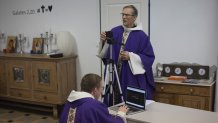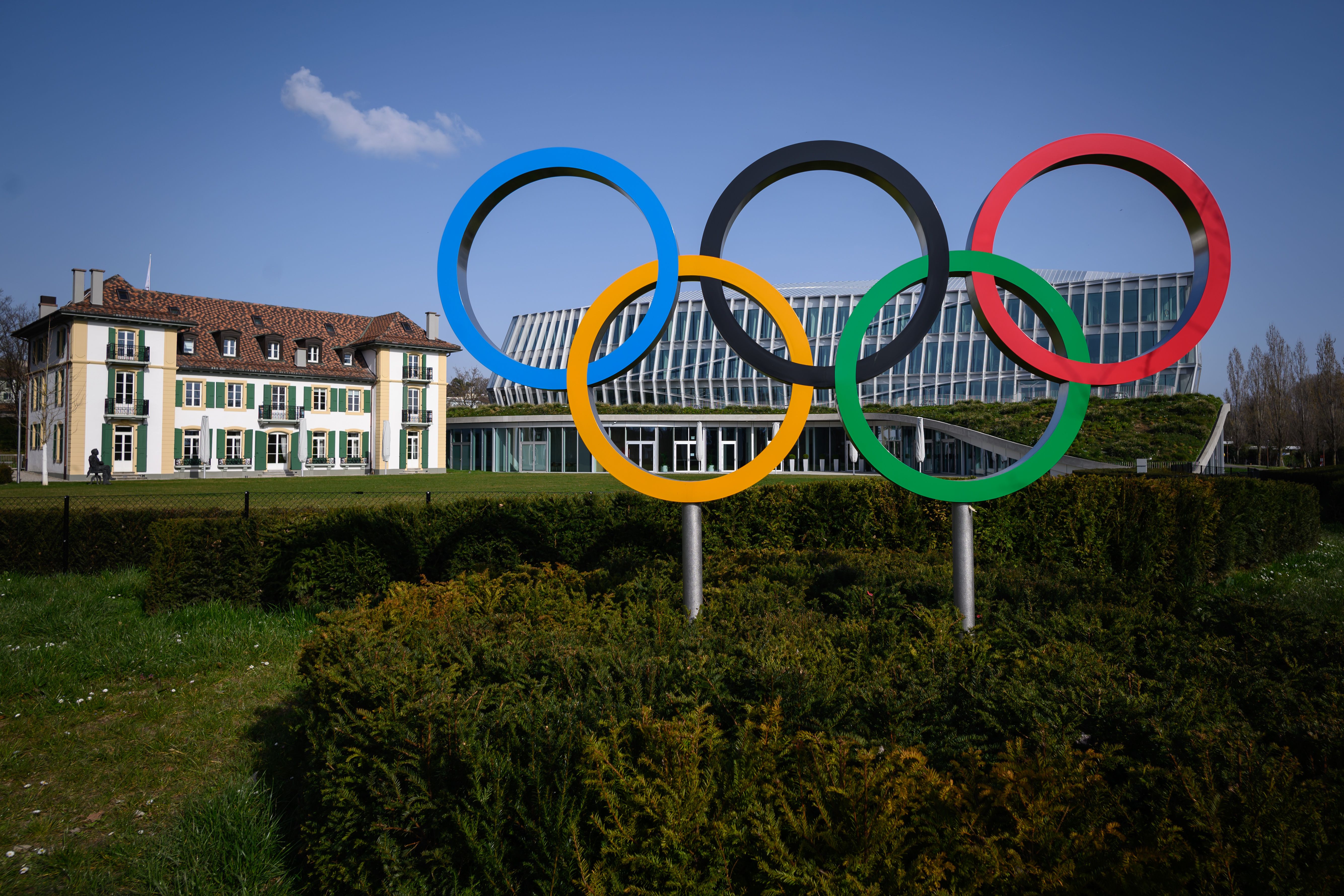
Recent restrictions on gatherings in France to prevent the spread of the new coronavirus have forced religious communities to adapt the way they express their faith.
On a typical Sunday morning, Father Philippe Rochas greets roughly 350 worshippers as they trickle into the neo-Gothic St.-Vincent-de-Paul church in the heart of Marseille.
This Sunday, however, he sat hunched over a webcam as he and his fellow priests prepared an empty meeting room to live-stream Sunday Mass directly to the screens of parishioners confined at home.
"I already realize that the people who see us online are very happy to have this service, as a kind of comfort," Rochas told The Associated Press.

As he delivered a sermon to just over 70 live viewers Sunday morning, one commented on the site: "glory be to god, amen," followed by a prayer emoji.
Get Tri-state area news delivered to your inbox. Sign up for NBC New York's News Headlines newsletter.
By the end of Sunday, the video had accumulated more than 500 views on its Facebook page.
The French government imposed confinement rules in the past week. Those rules do not list churches as valid destinations on the permission forms required to leave confinement. But, Rochas decided to leave his church open for individuals to come and pray, up to a maximum of 20 people, who must respect the social distancing measures and barriers put into place. Lines of warning tape and red X’s cover the rows of polished seating at the church of St.-Vincent-de-Paul.
"We miss the real contact with our parishioners, but I strongly believe that in this new situation, we will reach new people," he said.
Coronavirus Pandemic Coverage
France is seeing a rapid rise in cases of the virus, with the third-largest number of deaths in Europe.
Most people quickly recover from the virus after experiencing only mild or moderate symptoms, such as fever and cough. For some, especially older adults and people with existing health problems, it can cause more severe illness, including pneumonia.
While nonstop global news about the effects of the coronavirus have become commonplace, so, too, are the stories about the kindness of strangers and individuals who have sacrificed for others. "One Good Thing" is an AP continuing series reflecting these acts of kindness.
The Associated Press receives support for health and science coverage from the Howard Hughes Medical Institute’s Department of Science Education. The AP is solely responsible for all content.



